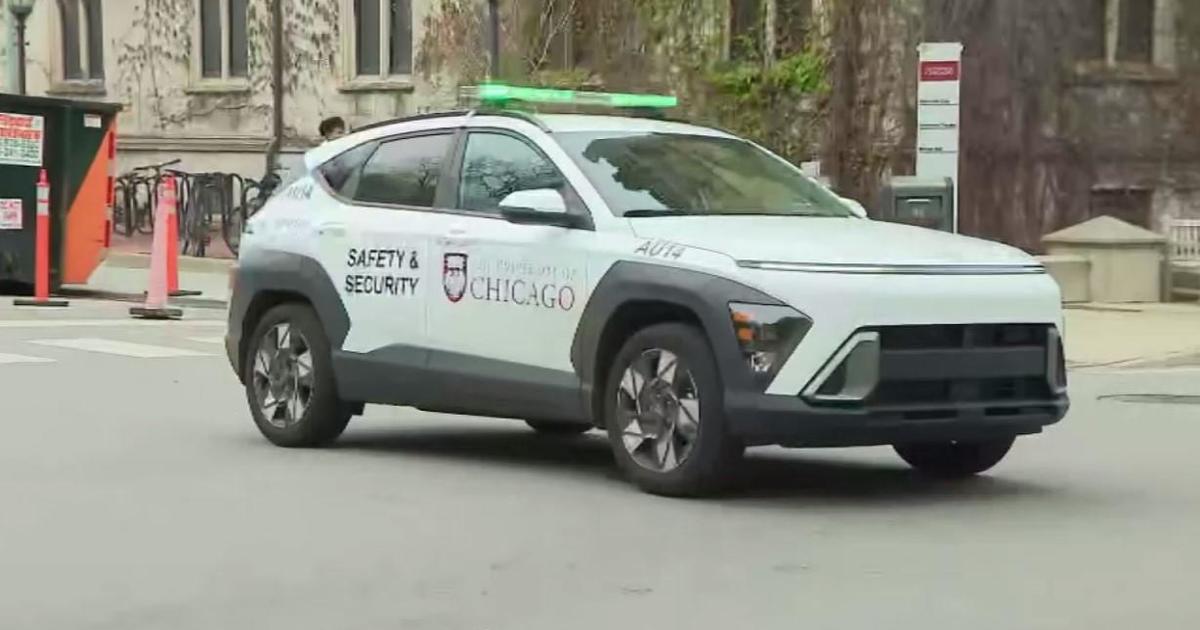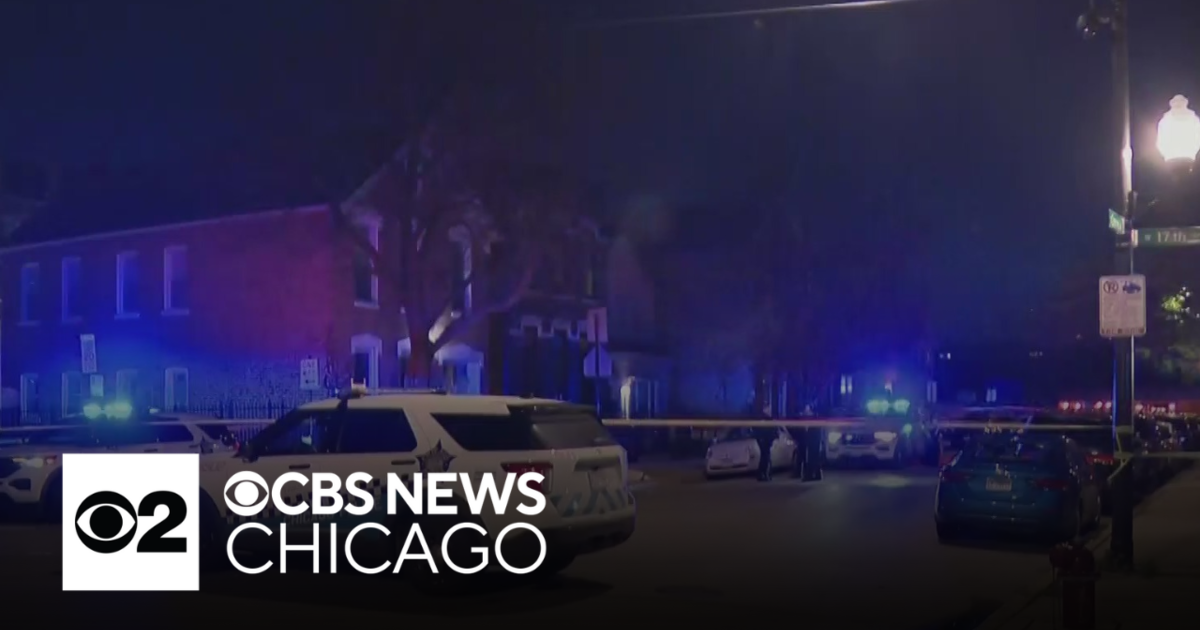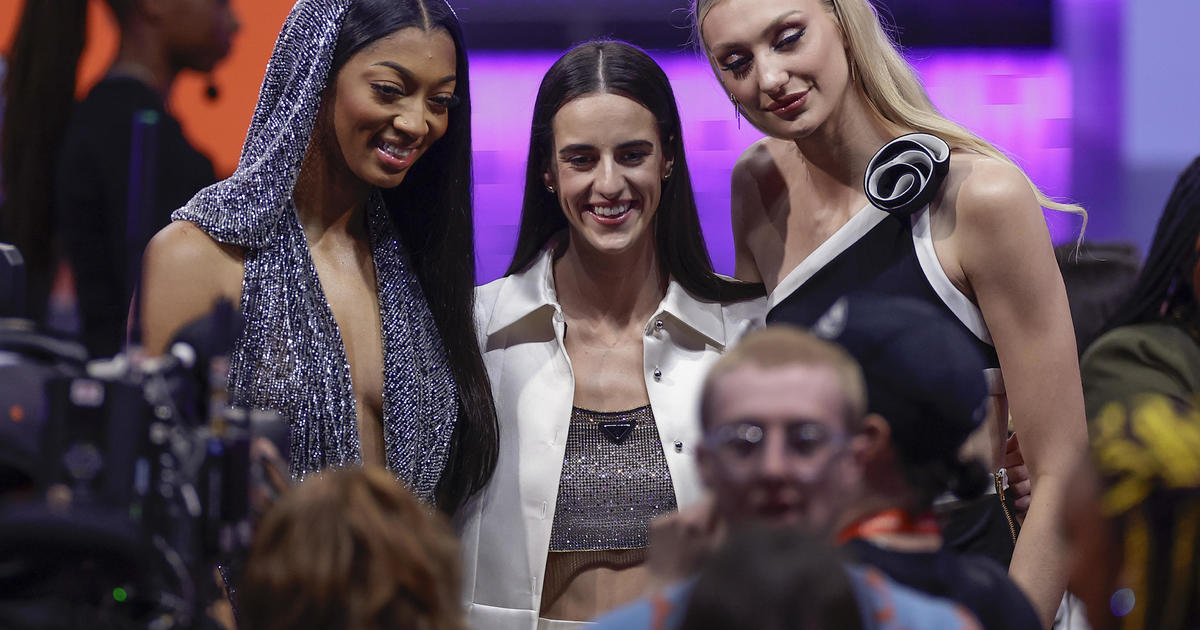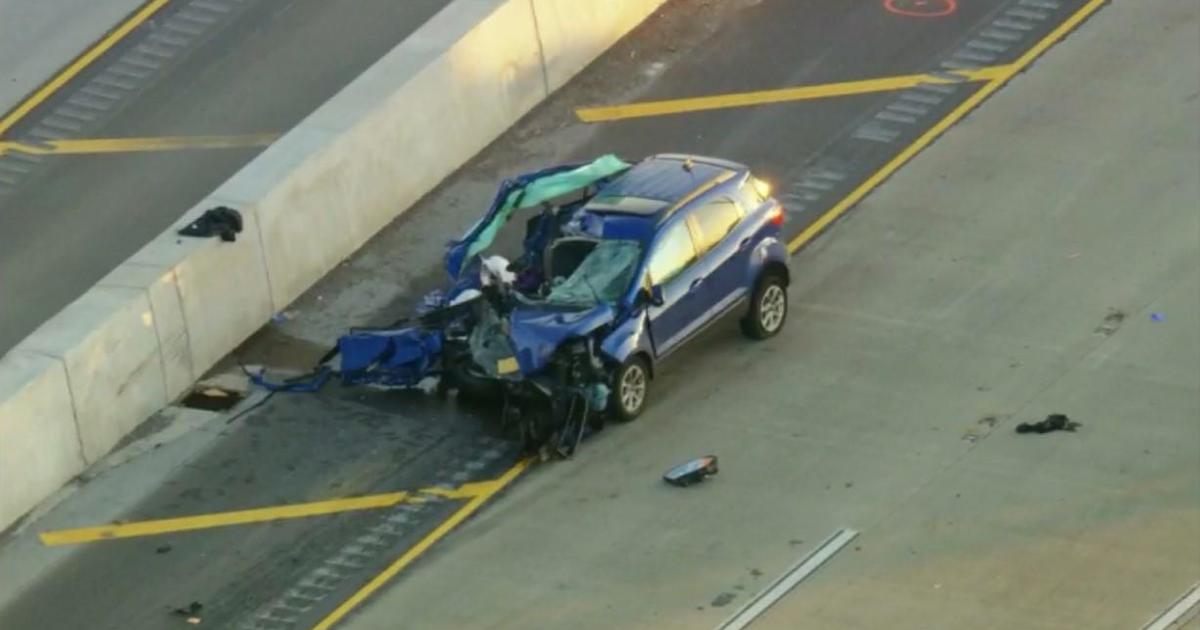Iowa Caucuses Prove An Intriguing Learning Experience For University Of Chicago Students; 'It Seems Like Such A Weird Way To Do It'
by Todd Feurer, CBS Chicago web producer
WEST DES MOINES, Iowa. (CBS) – What is it about the Iowa caucuses that could convince dozens of college students from as far away as California and Florida want to visit the Hawkeye state in the middle of winter?
It's not just the state's unusual process of choosing nominees for president, but the personal approach the candidates themselves have to take to convince voters to support them.
"It seems like such a weird way to do it, so I wanted to see it first-hand," said Ricky Holder, of San Bernardino, California.
A first-year public policy student at the University of Chicago, Holder said he's worked on local campaigns back home in California before, but he said Iowa's caucus system – with voters openly trying to convince friends and neighbors to support a specific candidate on election night – demands a much more hands-on strategy.
"They get to see the candidates up close and personal," he said. "Iowans expect to see the candidates there, and if they don't see them, that certainly doesn't bode well for your candidacy, but when I worked on campaigns in the past, it wasn't essential that the candidate come and sit down and have a cup of coffee with you and your family."
Holder is one of about 50 University of Chicago students who are experiencing the caucus process first-hand through the Iowa Project at the school's Institute of Politics.
Institute of Politics executive director Gretchen Crosby Sims said another 50 students visited Iowa in the summer, for internships in journalism and field work. Another group of about 10 students came to Iowa last month for the Democratic debate last month. In all, about 275 students applied for a chance to go to Iowa to learn more about the caucuses.
"We just hear so much about the Iowa caucuses, and it just seems completely different from the system we have in New York, and I really wanted to learn more about it, and experience it first-hand," said Marya Mitrasinovic, of Brooklyn.
Before attending the caucuses, the students in the Iowa Project also had the opportunity to talk to local and national journalists about the campaign, to meet Democratic candidate Tom Steyer and tour his Iowa field office, and to visit the Iowa state capitol.
Janiel Santos, of Portland, Oregon, said it was particularly impressive to see how much campaign workers in Iowa encouraged her and her classmates to get involved in the political process.
"From the moment that we got through the door, everybody was like, 'Do you want to volunteer? Do you want to come out and canvass with us?' They were very much, from the get-go, engaged to make sure that they were getting as many volunteers and getting as many people involved with their campaign."
Especially appealing to Santos and several of her classmates was the opportunity to actually attend a caucus, and see the approach voters take to convincing others to support a particular candidate.
The caucus is a two-stage process, with supporters of each candidate grouping together – either holding up hands or standing under signs with their candidates' name. If a candidate doesn't get at least 15% support in the first round, their supporters must either choose another candidate, or convince enough people to join them to reach that threshold and get a share of the delegates in their precinct.
"I'm really excited to see how the second-round voting goes, when certain candidates don't reach the viability threshold. I think it's going to be really interesting to see the strategies employed by, specifically, more progressive candidate supporters, to maybe reel in the moderate candidates that don't necessarily hit that 15% threshold," said Andrew Simon, of Yardley, Pennsylvania.
Lena Diasti, of Tampa, Florida, said the personal discussions that are central to the caucus system is something she believes is lacking in the American political system in general.
"I think we assume people's beliefs based on where they're from, or how they look like. So I think communication about what policies look like, and what policies we need as people look like is really important. So I feel like the Iowa caucus, or just caucuses in general are important to have that communication," she said.
Diasti said she hopes attending the Iowa caucuses gives her an opportunity to learn more about the way other people think about the issues that affect them.
"People from Iowa have different experiences than me. Some are similar, whether or not they have the same identity or the same background as me, so I want to see that in action. I want to see how that translates into policy," she said.
Estrella Hernandez, of San Antonio, Texas, said even before attending an actual caucus, she's learned that voters in Iowa take their place as the first in the nation to vote for president very seriously.
"This isn't something that they take flippantly. It's very much a serious responsibility, is that this discussion isn't just based on preference for a candidate. It's really what people believe is the best for their community, and something that's arrived at after many many months of debate and campaigning," she said.
Hernandez said she was impressed to see that, even in the highly polarized political environment across the nation right now, people in Iowa are able to set aside their emotions to try to look at candidates and policies objectively in an effort to make a choice they feel is best for their state and the nation.
"I've had discussions with people from all over the political spectrum, from Sanders supporters to Trump supporters, and what seems universal to unite them is concerns about how what's being done in Washington is affecting their lives and the people around them," she said.
While the students said that public discussion about the candidates and their policies has its benefits, they acknowledged the caucus system is a difficult one to emulate. For one, it would be a much bigger logistical challenge for larger states.
For another, it leads to low turnout, as there is no early voting or voting by mail, like in other states; and voters must be at a caucus site at 7 p.m. on election night to participate, giving them a very small window to actually vote.
"To go you have to really care. If you're going to spend so much time caucusing, you must really care about American democracy. So I hope to learn more about that, and the role that plays in Iowa, as compared to other states," Mitrasinovic said.
While that might lead to the voters who do participate in caucuses being more politically engaged, Simon said he's not sure whether it's worth the tradeoff of lower overall participation in the voting process.
"I don't know whether it's more valuable to have a few people that know all of the issues, or everyone knows some of the issues," he said.
Either way, Simon and his classmates were thoroughly thankful for the opportunity to see what the Iowa caucuses are all about.
"I'm really grateful to the people of Iowa for being so welcoming. I'm sure that they get pretty sick of political tourists like me coming in every four years and talking to them, but everyone I've spoken to has been really, really understanding," he said.



